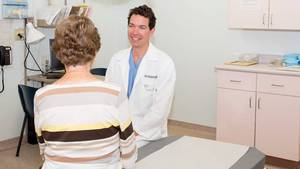We hope you enjoy reading our 2014 fall issue of
You may be asking, why does the QEII Foundation co-publish
We believe that the QEII is a jewel in our healthcare system. And in this time of significant change in health care, we want you to know that the QEII will continue to be here for all us, when we need it most.
Since 1995, the QEII has been caring for people from across Nova Scotia, and in fact, from all parts of Atlantic Canada. The most critically ill people in the region have come to rely on the QEII for its compassionate care, which is enriched by its world-leading research. The QEII is a community of dedicated healthcare professionals and volunteers, working in a complex network of healthcare programs and services. Spanning two city blocks, on the Victoria General site and the Halifax Infirmary site, the QEII is comprised of 10 buildings, providing care for more than 1-million patient visits per year. The QEII is also training future healthcare providers, as the only adult academic health sciences centre in the region through its partnership with Dalhousie University.
Over the past two decades, it is the generosity of Atlantic Canadians that has helped make the QEII an extraordinary health centre. The QEII Foundation has been able to make a profound difference in the lives of thousands of people as a result of generous financial contributions over the years. Together, we have helped reduce wait times for people struggling with cancer and advanced state-of-the-art technology for treating heart disease. We have supported innovative research in organ transplantation and orthopaedics, and improved facilities for ambulatory care, emergency medicine, and intensive care and brought comfort and care to patients’ bedsides. And we couldn't have done it without you.
We encourage you to support health care through your local health centre foundation. Whether you support the QEII or your local community hospital, your act of philanthropy will help make our health centres stronger, keeping families together and helping people live longer. We hope you enjoy reading this issue of








